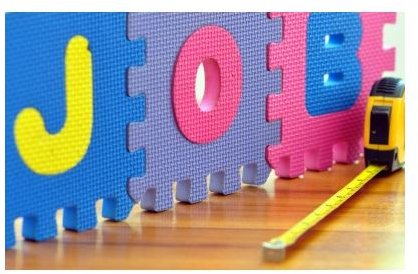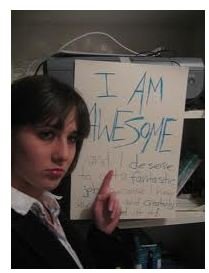An HR Guide to the Interview Process: Tools, Tips and Resources
The Human Element
Human resources, the only active resource that any enterprise commands and the major source of the organization’s knowledge repository plays a critical role in the success of any firm. Very often the success of the organization is directly proportional to the quality of the human resource the organization commands.
Unlike most other recruitment techniques, in an interview, the interviewer gets to interact with the candidate directly, ask questions and follow-up on answers in real-time, obtain verbal and visual cues, and get instant feedback from the candidate. Many seasoned interviewers say they eek to get a “feeling” of the person or develop a “gut instinct” on whether the candidate would fit. The candidate also gets a chance to clarify matters in real-time and clarify expectations.
Resources, Tips and Tools for Interviewing
Interviewing Potential Employees: Which Method Works Best?
The success of the interview process depends on knowing what type of questions to ask, and this depends largely on the type of interview adopted. There are many types of interviews: telephone interviews, impromptu interviews, one-on-one interviews, panel interviews, structured interviews, situational interviews, stress interviews, and more. The interviewer may ask open-ended or closed-ended questions. The best approach depends on the situation. For instance, if the job at hand is to drive a bus, the questions to ask is whether the candidate has a valid driver’s license, how he handles road rage, is he an habitual drinker, and more.
Types of Recruitment Interviews
Small organizations usually conduct only a single interview. Large organizations, however, have screening interviews to shortlist candidates, and follow-up interviews to select candidates. The follow-up interviews may be behavioral interviews such as critical incident interviews, stress interviews and lunch or dinner interviews, and / or technical interviews.
Pros and Cons of the Stress Interview
Stress interviews are a double-edged sword. The purpose is to place the candidate in a situation similar to which they would encounter at work, and see how they fare. When done right, it reveals the true picture of how a candidate fares when the going gets tough, but on the other hand, a candidate expecting the same can fake it. There is also the ethical issue to ponder.
Creative Job Fair Ideas: Attracting the Best Candidates
Job fairs are a good source for finding candidates, especially at the entry-level. One essential component of such job fairs is “insta-interviews” or express interviews to identify suitable candidates from the multitudes that walk in. Make sure to arrange for such interviews, and remain prepared to conduct the same when a suitable candidate walks in.
Questions to Ask During a Job Interview
Asking the right questions is critical for the success of the interview. The best questions to ask depend on the job in question, the position, and the candidate’s background. As a rule of thumb, make sure to include questions related to experience and work ethics, motivation and goals, and probe how the candidate fits in with the job and organization.
How to Assess the Candidate’s E-Profile
A good portfolio tells the candidates’ story of growth and development over time. One major task of the interviewer is to review such portfolios by walking the candidates through with the components of the portfolio. This would allow the candidate to substantiate the claims made, and the interviewer to make clarifications, or as follow-up questions to assess the suitability or relevance of the candidates’ skills and talents for the position. The interviewer needs to remain focused and evaluate the portfolio objectively.
Top Interviewing Skills for Selecting the Best Candidate
The best interviews take place in a structured format, with HR setting a hiring criteria beforehand, pacing the interview appropriately, and using planned questions yet remaining flexible to ask follow-up questions. Good interviewers focus getting to know more about the behavioral traits of the candidates. Following such tips ensures the success of the interview process.
Tips for Conducting Job Interviews

Successful interviews require much preparatory work. The key considerations include selecting the interviewers, and this depends on the job description and job specifications. Make sure to decide on what to ask, and schedule the interview well.
An Overview of Good Interviewer Etiquette
Successful interview requires the interviewer to follow proper etiquette. This lends a natural air and flow to the proceedings, puts the candidate at ease, and ensures an effective interview session. Make sure to remain polite and refrain from asking questions that may violate the law or fuel discriminatory hiring charges.
A Sample Job Interview Rating Sheet
The success of the interview depends on adequate preparation not just by the candidate, but also by the interviewer. Without preparation the interviewer may fall short of asking the most relevant questions or probing critical factors related to the job. A job interview rating sheet allows conducting the interview in a structured way, probing the subject area and helping to make informed judgments.
A Sample Job Interview Score Sheet
A score sheet allows the interviewer to make a structured and formal assessment of the candidate’s skills and competencies during the interview process, regardless of the type of interview. A generic score sheet allows the interviewer to rate the candidate on general interview questions, specific questions related to the position, and compatibility questions related to the candidate. There is, however, no hard and fast rule regarding the structure and format of an interview score sheet.
Job Interview Questions to Avoid
Personal details such as age, date of birth, disability, race, religion, ethic origin, marital status, weight, sexual orientation and more are potential trouble spots for an interviewer. Such questions may violate various federal, state and local requirements that regulating hiring, and attract discriminatory hiring charges. Employers should ask such questions related to such factors only if they are relevant for the job, and even then, phrase in the correct way.
Job Interviews and Legal Implications: Tips for Interviewers
It is important for interviewers to remain aware of the legal stipulations governing interviews to remain on the right side of the law. Asking questions related to race, color, sex, religion, age or disability during the interview process may invite charges of discriminatory hiring practices. Candidates may complain to the EEOC if they find themselves at the wrong end of such questions.
Hunting for Talent? Stay Away From These Interviewing Methods
Several things can go wrong with an interview. The inappropriate choice of interview type, the interviewers asking questions at random without any direction or sense of purpose, ignoring the sensitivities of the candidates, and many other things all render the interview process ineffective. Unless the recruiters take care to avoid such mistakes, the entire recruitment process can end in a disaster.
Have Employees Leaving? Make Sure to Conduct an Exit Interview
Exit interviews serve to obtain honest feedback from departing employees who unrestrained by fears of reprisals or impropriety would more likely open up their minds. Success depends on asking the right questions and overcoming the many obstacles that stand in the way of such an interview taking place.
Looking for more information? If this HR guide to interview does not cover what you are looking for, then this business guide on how to manage employees and tips for retaining workers will surely fulfill your need. Or, simply use the comments section below to seek clarification, or engage in a lively discussion on the topic.
References
-
Image Credits:
1. flickr.com/Dani Lurie under CC 2.0 license
2. freedigitalphotos.net/Michelle Meiklejohn under these terms of use
